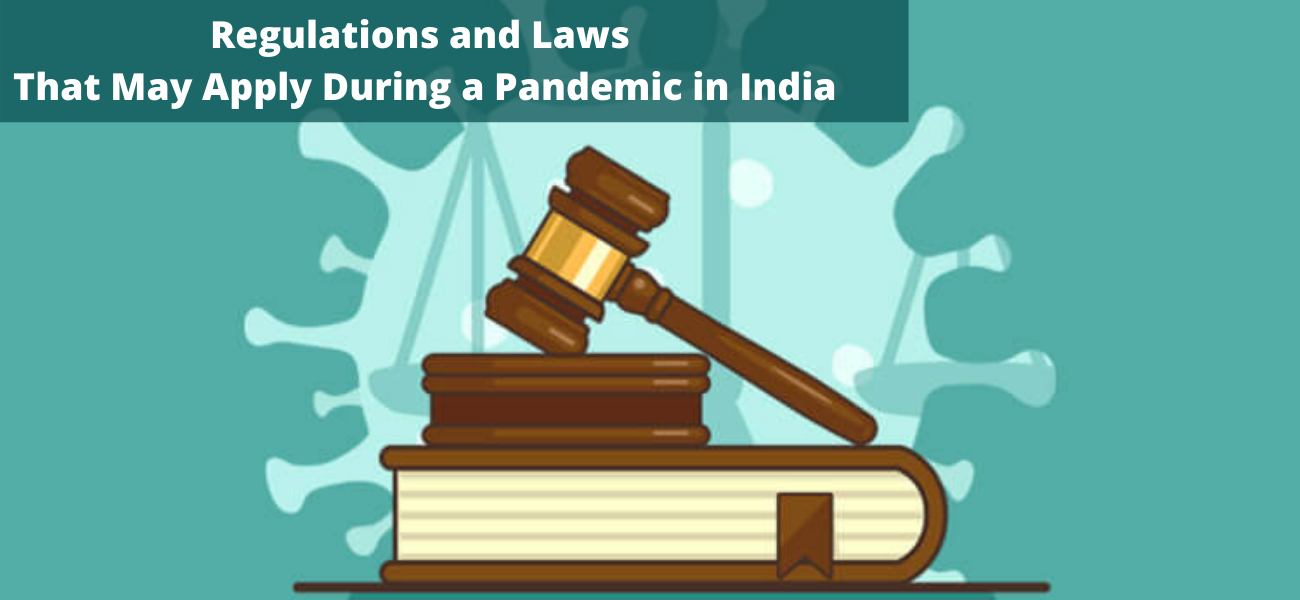
The governments all around the world are trying to tackle the pandemic crisis going on right now. The entire world is in chaos and people are witnessing something they had never thought existed. We are fighting a new highly contagious disease, COVID-19, a.k.a. the coronavirus. While everybody is frantically checking the rising graphs of death tolls and recovery rates, the governments are prepared for the worst.
Attempts are being made to devise a vaccine for this virus. However, until then, WHO has advised people to follow the precautionary guidelines recommended by them. It is a 3-part thumb rule — Isolation, Distancing, and Personal Hygiene.
While we are at it, the Indian government has reminded us of the various laws in the constitution that are to be abided by during this tough time of the pandemic.
A lot of us are witnesses to these laws and regulations in action, however, a majority of us are not aware of the acts and sections under which they are mentioned in the Indian Law.
Some of the laws related to COVID-19 that we all should know are:
- Disobedience to Quarantine Rule — Section 271 of the Indian Penal Code, 1860
This section states that anyone who disobeys the rules of quarantine is punishable by law with a penalty or imprisonment.
- Negligent Act Likely to Spread Infection of Diseases Dangerous to life — Section 269 of the Indian Penal Code, 1860
Anyone who ‘unknowingly’ spreads the virus or infectious disease to other people is punishable by law under this section and subject to a penalty or imprisonment.
- Malignant Act Likely to Spread Infection of Diseases Dangerous to life, Section 270 of the Indian Penal Code, 1860
Anyone who ‘knowingly’ spreads the virus or infectious disease to others while fully knowing the consequences of it is punishable by law under section 270 of IPC and subject to penalty and/or imprisonment.
- Disobedience to order duly promulgated by Public Servant — Section 188 of the Indian Penal Code, 1860
This section states that anyone who disobeys a public servant, such as an officer, or tries to voluntarily obstruct his functions, undertaken in the public interest, is subject to imprisonment and/or penalty.

- Section 144 of the Criminal Procedure Act
Section 144 prohibits the citizens of a state to assemble or gather in groups of 5 or more than 5 individuals. Anyone caught doing so can be arrested without a warrant. When this section is imposed, all social, religious, and political events are prohibited until it is called off.
- Section 3 of the Essential Commodities Act, 1955
This section implies the central government of the country can control the supply, distribution, and production of essential commodities and use them in the public interest as per the requirement of the situation. Presently, 9 things are included in the list of essential commodities as per the Indian Law. They are:
- Drugs
- Food items and edible oil
- Fertilizers – both organic and inorganic
- Coal, Petroleum and its products
- Hank yarn made with cotton
- Seeds of vegetables, fruits, food crops, fodder, jute, and cotton
- Raw jute and textiles made of jute
- Face Masks
- Hand sanitizers
Face Masks and Hand Sanitizers were added to the list very recently when they were recommended in the WHO guidelines.
- Epidemic Diseases Act, 1897
Under this act, the state government has the power to take special actions against the spread of a life-threatening contagious disease, by controlling, restricting, or prohibiting the various aspects of the trade, transport, social and religious events, etc.
- Disaster Management Act, 2005 and National Disaster Guidelines, 2008
This act allows the state to take intense measures during disasters such as catastrophes, calamities, or natural mishaps. The pandemic falls under the ‘notified disaster’ category of this act. This act provides the state access to the funds from the national, state, and district disaster management funds, which are used for ensuring safety measures against the disaster. The act also allows the government to act in response to the disaster and create coping strategies in the public interest to minimizes its effect. When this law is imposed, the government has the power to cancel, postpone, or call off events such as exams, elections, etc. and impose curfews in regions of the state or the entire state.

Leave a Reply